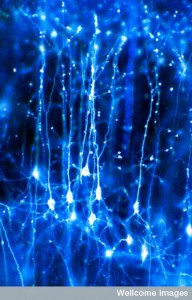For a while now I’ve just been hoping people would stop mentioning the term AD/HD around me.
Last night, instead of burying my head in the sand, I did some actual reading.
Apparently I had bought into the “AD/HD is way over-diagnosed and isn’t a real condition anyway” backlash without even being around for the first wave of information.
What The Medics Say

All the medical sites and support group sites seem to have the same basic information:
- There are regions of the brain that show differences in some people: the regions that controls attention and executive control (this study on adults with ADHD is described as ‘preliminary’ and is small-scale, but interesting nonetheless);
- All children (and most adults) have some symptoms of ADHD sometimes;
- People are diagnosed with ADHD when these symptoms are chronic, extreme and make life difficult by harming their interactions with the people around them:
- In people diagnosed with ADHD these behaviours are not associated with willfulness and a desire to disrupt. They just ‘are’.
Now my job is to find some dissenting opinions that aren’t based in quackery, a desire to make money or sheer bloody-minded argumentativeness.
And then weigh things.
Genetics As A Factor
There is a strong suggestion, in what I’ve read, that ADHD has real, biological markers. There is also, then, a suggestion that it is a genetic thing.
Before I started my reading I was all set to point the finger at the paternal line: all that energy, all that brilliance, all that clumsiness.
After reading about ADHD symptoms and taking a little look back over my own life, I’m now semi-convinced that I have it too! (I’ll still pin the hyperactivity part on someone else though. That is soooo not me).
It could just be the old medical-textbook psychosomatic thing kicking in, but those symptoms are things I have fought (rather unsuccessfully) my whole life, and are character traits that cause me great frustration in my ability to overcome.
So What?
But whether I have a disorder is not so much the point.
Just the fact that I recognise many of the tendencies in myself and know, first-hand, how hard it is to overcome them, is making me a feel a lot more charitable towards the little bundle of Attention Deficit that spurred my research (it really was tempting fate, wasn’t it, giving him a name with the initials “AD”?!)
So I don’t know what happens next.
But I feel better informed and less knee-jerky about the whole thing. And that’s got to be good.
If only I can focus long enough to make a decision…

Try working in a psychiatric hospital for a while, and you’ll become convinced that anyone without psychotic/schizophrenic/alcoholic and/or suicidal tendencies is NOT AT ALL normal!
I think we all have it in us – as you point out everyone exhibits one or two tendencies at some time!
Well quite. I think that’s why it all feels vaguely wrong when I’m sitting in these meetings and people are slinging labels around.
Then I talk to other mothers and it seems like everyone interesting has been diagnosed with something, and that which ‘something’ tends to depend on how willing the parent is to accept the first label they apply, or not!